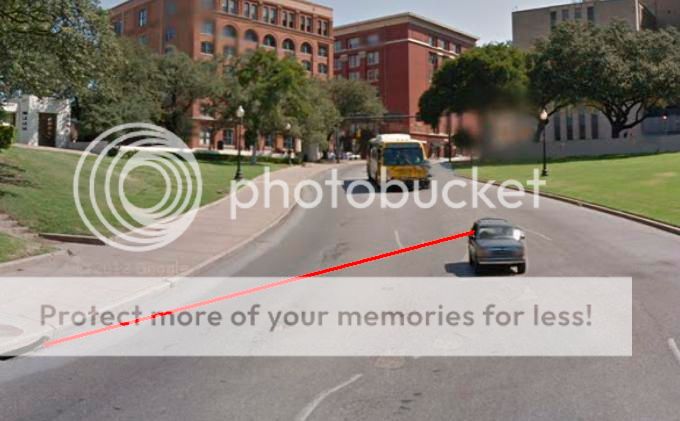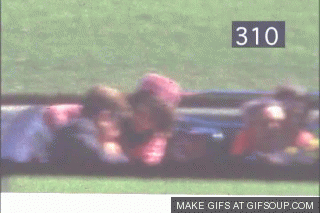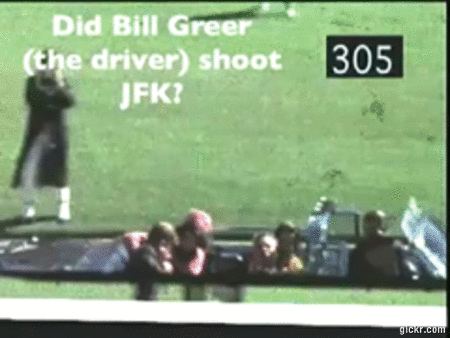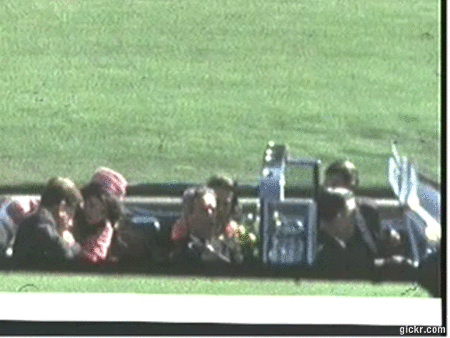I cant draw that conclusion, the ballistics does not support it.
except its not ME saying it,I didnt come up with that conclusion,PHOTOGRAPHY experts came up with the conclusion that the zapruder film was altered.you need to read the book THE GREAT ZAPRUDER FILM HOAX. again,your doing the same thing lone nut theorists do,ignore what the dallas doctors do therefore im wasting my time with you on this.you going to do what the trolls do who ignore facts that oswald was innocent and ignore the dallas doctors like they do,then agaim,stick to 9/11,a discussion your much better at.
read that book then get back to me,till then,this discussion between us is over.
I can see that it was altered but not as much as the one that 7 is using.
Its not hard to alter a film, pain in the ass in those days yes, hard not.
Hardly, I presented a different set of facts, and my set of facts the ballistics just happen to match.
You want to run with 7 on this fine, however then you implicate Jackie as an accessory to the murder of her own husband along with connally, his wife, the front seat passenger and anyone else who would have had seen or felt it.
Gun powder is a chemical expansion of gases and even silenced you still get the smell and easily detectable air blast.
You cant settle for blobs in a video with complete disregard for the forensics.
Hill saw Greer's gun and
Bertha smelled gunpowder on the Governor and President. No surprise there, since
the gun was fired right over Connally's head.
insidethearrb
Here is some collaborating information (on the SS Agent Greer being the source of the final headshot with his nickle plated revolver)
Douglas P. Horne, Chief Analyst for Military Records, Assassination Records Review Board (Pub 2010) details in volume five of this incredibly
detailed and well-documented five volume set,
how a "prominent researcher" that he knows who requested confidentiality on his identity, describes video taping an interview (shortly before the witness died) with an unnamed black steward on Air Force One, who related an incident on the Air Force One flight back to Washington after the assassination,
during which Secret Service Agent Clint Hill "was changing his shirt (which was covered with the President's blood) and
in a moment of complete honesty, while being assisted by the steward with his change of wardrobe,
confided to the steward that when he jumped onto the back of the limousine, 'the driver had his gun out and it was pointed right at my face'."
Horne continues, "As the interview was related to me,
Clint Hill was quite shaken by what he saw, for the implications were obvious. Hill's
descriptions of the sound of the head shot(s), in both his written statement and in his Warren Commission testimony,
were consistently that it resembled the sound a revolver makes when it is fired into a hard object."
Horne continues, "
The discharging of a firearm inside the limousine could also explain why the triage nurse at Parkland hospital, Bertha Lozano, smelled 'smoke' (i.e. gunpowder) when Kennedy and Connelly were rushed past her on gurneys to the trauma stations for treatment." "The videotaped interview of
the steward also provides independent corroboration for Hugh Betzner's account in his Sheriff's Department affidavit of November 22, 1963, that he saw a nickel (plated) revolver in someones hand inside the limousine during the assassination, and is consistent with
Jean Hill's account in her affidavit of November 22, 1963 that some men in plain clothes were 'shooting back' (at the assassins)." "
One other Chrenshaw quote from High Treason 2 (page 114) is worth of mention here:
'The Secret Service men were there when we started to work on Mr. Kennedy (at Parkland Hospital). Clint Hill had a gun out and cocked and we were afraid he was going to shoot one of us. And Doris Nelson went around saying, 'he's okay, he's okay, he's okay,' and got him finally out of the room. It was sheer bedlam.
This makes sense to me only when I consider the revelation made by
Clint Hill to the Air Force One steward. Consider his state of mind in Trauma Room One, given what Hill confided to the steward. He had just
seen (and heard) the driver of the President's limousine plug the President, the man they were all sworn to protect, with a coup de grace shot to the head, and from that moment onward (until the end of his career when he was granted early retirement in 1975), his world was turned upside down. He was surrounded by known traitors: William Greer, Roy Kellerman, Floyd Boring, Emory Roberts -- and doubtless others, unknown to him. He didn't know whom to trust, and besides being infused with anger and overcome by sorrow, he might well even have been afraid for his own life, for having heard Greer fire his revolver, and seen it in his hand immediately after the head explosion, he was clearly, 'the man who knew too much'.
Hill had enough intestinal fortitude to tell Arlen Specter about Floyd Boring's security stripping role under oath, and enough common sense to suddenly forget Boring's name when he was required to prepare a written statement about the matter later for Secret Service Chief James J. Rowley. The poor man suffered from deep depression and alcoholism for years, and his agony was still apparent, and right on the surface, in 1975 when he was interviewed for the television news magazine 60 Minutes by Mike Wallace. (During that interview, I believe Hill was as upset by what he could
not talk about, as he was by what he did talk about. The 'survivor's guilt' that he exhibited during the poignant interview may really have related more to his failure to blow the whistle on the 'dirty' Secret Service agents involved in the assassination, than to his failure to get to the limousine in time to protect the President."
Horne's five volumes, large format paperback set is incredibly inclusive and well documented and is available on both amazon.com and amazon.ca. I strongly recommend it.
 Both of Greer's hands were off the wheel, during which he transferred the gun. You've been aware of these facts for years.
Both of Greer's hands were off the wheel, during which he transferred the gun. You've been aware of these facts for years.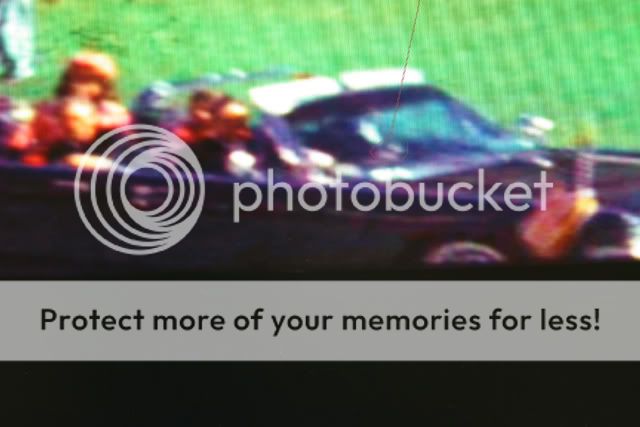

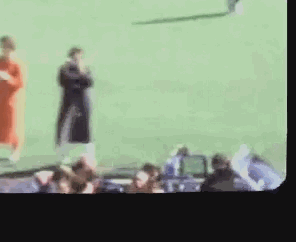
 I see you have done very little research into this at all because all serious researchers know for a fact that the zapruder film has been altered.proof of that is in the muchmoore and nix films you see Greer turning around raising his left arm pointing it at kennedy CLEARLY taking his hand off the wheel.
I see you have done very little research into this at all because all serious researchers know for a fact that the zapruder film has been altered.proof of that is in the muchmoore and nix films you see Greer turning around raising his left arm pointing it at kennedy CLEARLY taking his hand off the wheel.